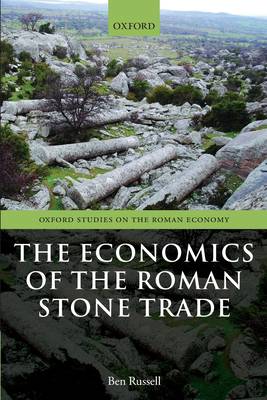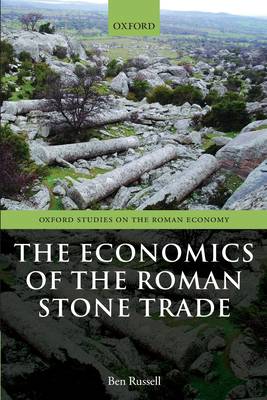
- Afhalen na 1 uur in een winkel met voorraad
- Gratis thuislevering in België vanaf € 30
- Ruim aanbod met 7 miljoen producten
- Afhalen na 1 uur in een winkel met voorraad
- Gratis thuislevering in België vanaf € 30
- Ruim aanbod met 7 miljoen producten
Zoeken
Omschrijving
The use of stone in vast quantities is a ubiquitous and defining feature of the material culture of the Roman world. In this volume, Russell provides a new and wide-ranging examination of the production, distribution, and use of carved stone objects throughout the Roman world, including how enormous quantities of high-quality white and polychrome marbles were moved all around the Mediterranean to meet the demand for exotic material. The long-distance supply of materials for artistic and architectural production, not to mention the trade in finished objects like statues and sarcophagi, is one of the most remarkable features of the Roman world. Despite this, it has never received much attention in mainstream economic studies. Focusing on the market for stone and its supply, the administration, distribution, and chronology of quarrying, and the practicalities of stone transport, Russell offers a detailed assessment of the Roman stone trade and how the relationship between producer and customer functioned even over considerable distances.
Specificaties
Betrokkenen
- Auteur(s):
- Uitgeverij:
Inhoud
- Aantal bladzijden:
- 480
- Taal:
- Engels
Eigenschappen
- Productcode (EAN):
- 9780198841753
- Verschijningsdatum:
- 15/10/2019
- Uitvoering:
- Paperback
- Formaat:
- Trade paperback (VS)
- Afmetingen:
- 155 mm x 231 mm
- Gewicht:
- 725 g

Alleen bij Standaard Boekhandel
+ 102 punten op je klantenkaart van Standaard Boekhandel
Beoordelingen
We publiceren alleen reviews die voldoen aan de voorwaarden voor reviews. Bekijk onze voorwaarden voor reviews.











